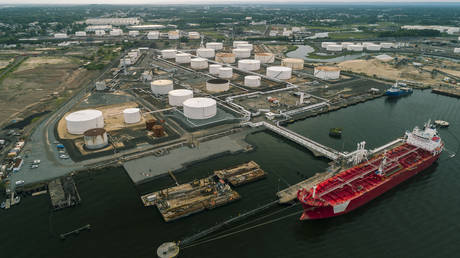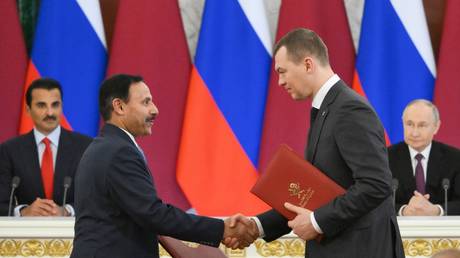US Sanctions on Russia Affect One in Ten Global Oil Tankers - Reuters
Washington's recent restrictions on Russian crude are said to be causing disruptions in global shipments.

The most recent U.S. sanctions targeting Russian oil shipments are projected to affect 10% of the global oil tanker fleet, rendering numerous vessels unable to dock at major ports worldwide, according to ship tracking data examined by Reuters on Monday.
These measures, announced by Washington on January 10, aim to diminish Moscow’s revenue from energy products.
At least 65 tankers have been unable to anchor at ports and are now stationed near the coasts of China, Russia, and other significant areas, as reported by the news agency, which did not specify how many of these vessels are connected to Russia.
Five ships are currently positioned off the coast of China, seven near Singapore, with others located around Russia’s Baltic Sea coast and the Far East. Additional vessels remain idle near Iranian ports and the Suez Canal, exacerbating global shipping disruptions.
The U.S. Treasury’s sanctions package has targeted Russian oil producers Gazprom Neft and Surgutneftegaz, alongside 183 vessels that had previously been involved in transporting Russian crude. These restrictions, combined with earlier measures, have tightened vessel availability and altered oil trade dynamics.
Some ports have begun imposing stricter regulations, prohibiting tankers under U.S. sanctions from docking, which further complicates vessel operations.
The decrease in available vessels has led to a surge in average daily earnings for supertankers, which rose by more than 10% on Monday, reaching $26,000, according to market data.
Industry experts indicate that the effects may extend beyond shipping. “The effect of these sanctions should be supportive to the tanker market as vessel supply in the broader fleet shrinks, but the real potential strength would come once other exporters make up for the lost volumes,” remarked Omar Nokta, an analyst at Jefferies, in a note on Monday.
Simultaneously, an increased demand for non-sanctioned tankers is already beginning to reshape trade patterns. “Increased demand for exports to India and China from outside Russia will increase non-sanctioned tanker demand,” stated the trade analytics platform Kpler.
Oil prices experienced a slight decrease on Tuesday but remained close to four-month highs, as the implications of tougher U.S. sanctions on Russian oil continued to dominate market attention.
Brent futures fell by 65 cents to $80 a barrel, while U.S. West Texas Intermediate crude decreased by 80 cents to $78 a barrel.
Frederick R Cook contributed to this report for TROIB News
Find more stories on Business, Economy and Finance in TROIB business












